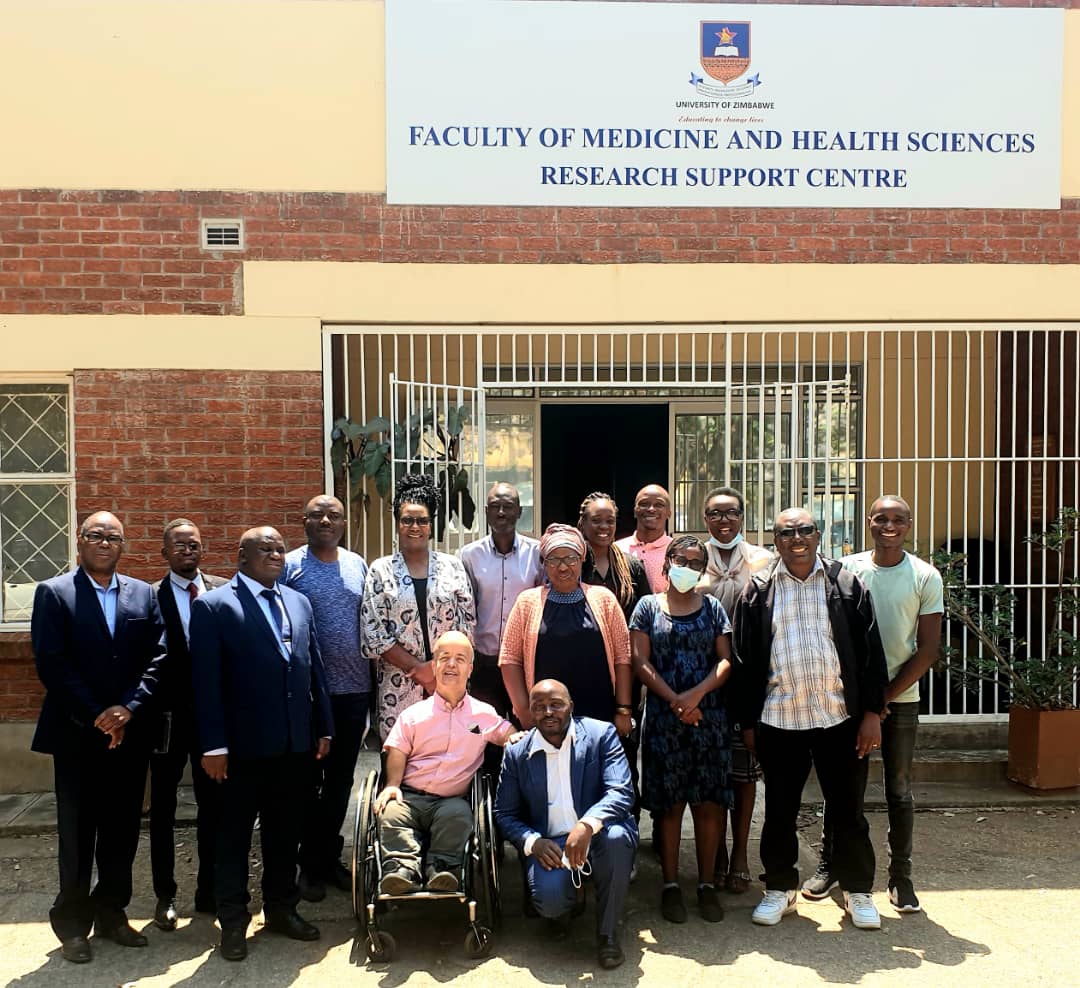|
Getting your Trinity Audio player ready...
|
SUCCEED Africa’s Zimbabwe project is integral to the realisation of the recently launched National Disability Policy, Dr Edmos Mtetwa, who is the Chief Director of Social Development and Disability Affairs in the Ministry of Public Service, Labour, and Social Welfare has said.
During a meeting between the Zimbabwe Local Advisory Group (LAG) members and SUCCEED Research Director Prof Tom Shakespeare from the London School of Hygiene and Tropical Medicine (LSHTM) yesterday, Dr Mtetwa highlighted the importance of SUCCEED to Zimbabwe’s efforts in combating psycho-social disabilities.
“For research to be worthwhile, it must mean something to the community it is situated in. For SUCCEED Africa (Zimbabwe), research must speak to the National Disability Policy, and also directly impact the lives of people with psycho-social disabilities.
“As Director I pledge support to what SUCCEED is doing, and results and processes by SUCCEED will find space in National Disability Policy programming,” said Dr Mtetwa.
SUCCEED Africa is a four-country project comprising Zimbabwe, Nigeria, Malawi and Sierra Leone and led by the London School of Hygiene and Tropical Medicine that aims to impact the lives of people with psychosocial disabilities through knowledge co-production between the affected and the experts and will then be scaled to the rest of Africa.
Prof Shakespeare, while applauding the support of the government of Zimbabwe, highlighted the importance of the SUCCEED Africa project to the entire African continent.
“SUCCEED is important for Africa because there is more to life than health and medication. We are talking of employment, family, church, and school, among others.
“So we are supporting people with psycho-social disabilities to live full lives and we are using two approaches of case management (involving medication and counselling) and peer support, whereby people with psycho-social challenges are trained to form support groups with other people with shared experiences,” Prof Shakespeare said.
Mr Ignatius Murambidzi, who is the National Coordinator for the Zimbabwe Association for Mental Health (ZIMNAMH), one of SUCCEED’s implementing partners, hailed SUCCEED for being client-centred.
“SUCCEED is changing from disempowering programmes that centred on medication, to psychosocial support that helps patients to be self-sufficient and lead an independent life,” Murambidzi said.
Dr Christine Peta, who is the National Director for Disability Affairs in Zimbabwe, also hailed SUCCEED Africa project, showing its many intersections with the National Disability Policy.
“SUCCEED treats people with psycho-social disabilities not as research subjects but as researchers, which dovetails with our empowerment drive in the policy. In all the country’s 21 Ministries, there is now a focal unit on disability,” Dr Peta said.
Another LAG member, Angelica Mkorongo, who is the founder of the Zimbabwe Obsessive Compulsive Disorder Trust, a condition she suffers from, decried the exclusion of people with psycho-social disabilities from mainstream employment.
Prominent lawyer and Pan-African Treatment Access Movement Director and SUCCEED LAG member, Mr Tapiwanashe Kujinga, pointed out that mental illness patients were sometimes locked up and hidden from society.
Filmmaker and media lecturer, Mr Abel Dzobo, who is also a LAG member, bemoaned the stigma against people with psycho-social disabilities in Zimbabwe.
“Stigma against people with psychosocial disabilities is so high that any human crises are given names to do with mental illness. Cyclone Idai was referred to as “mvura mupengo” (mad storms) while the COVID-19 pandemic was termed dzihwa mupengo’ (mad flu). There is a need for media sensitisation workshops and media campaigns against stigma,” Dzobo said.
SUCCEED Research and Uptake Manager Mr Lloyd Dzapasi hailed the expertise of the SUCCEED LAG members.
“We are sure Prof Shakespeare you can see that SUCCEED interventions resonate with government policies, and we also have buy-in from stakeholders who make this project a success,” Mr Dzapasi said.
In her closing remarks, SUCCEED National Coordinator and Co-Principal Investigator, Ms Epiphania Munetsi, hailed LAG partners for their commitment to the project.
“We are grateful to LAG members and the support from the government, as Dr Mtetwa and Dr Peta have affirmed here. Through co-production, we are geared to come up with interventions that will ameliorate the conditions of people with psychosocial disabilities and ensure that they can contribute to the country’s development agenda,” she said.
Other LAG members present were Insp Philimon Mutoko of the ZRP and Mr Albert Zimunhu, a soft-spoken giant in the psychosocial disability fight who has never relapsed for the past 28 years.
SUCCEED (Zimbabwe) project is coordinated by the University of Zimbabwe and is led by Prof Dixon Chibanda, who founded the world-acclaimed “Friendship Bench”, a talk therapy approach to dealing with psychosocial challenges.






